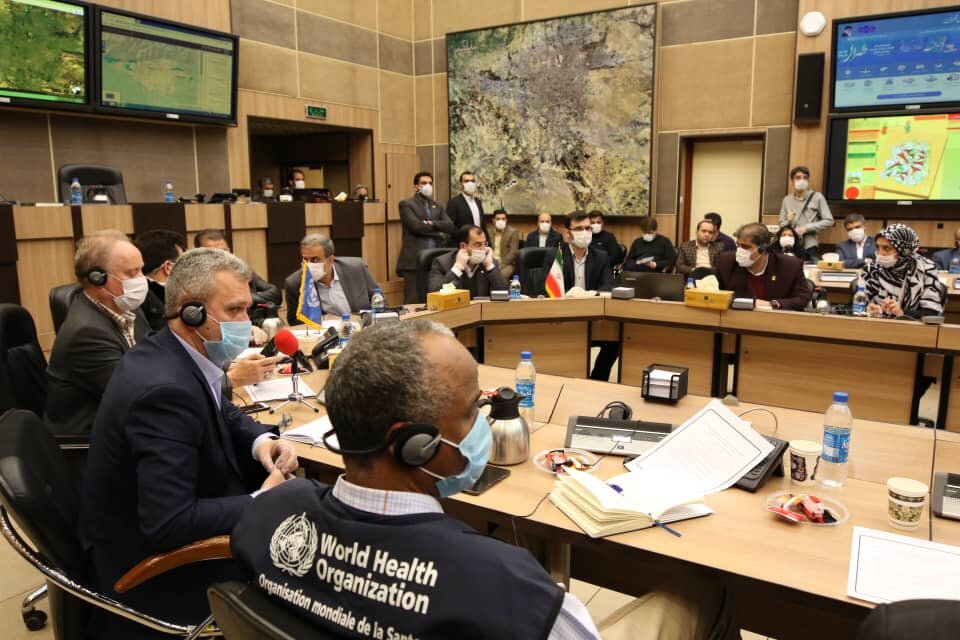WHO says Iran’s strategies to control COVID-19 ‘in the right direction’

A team of experts from the World Health Organization (WHO), GOARN partners, Robert Koch Institute in Berlin and the Chinese Center for Disease Control concluded a technical support mission on COVID-19 to Iran on March 10, 2020.
“After five days of extensive meetings and field visits, we see that Iran’s strategies and priorities to control COVID-19 are evolving in the right direction, a comprehensive coordinated approach is being applied, and solid work is being done especially in the areas of case management, laboratories, and risk communications. We are also impressed by the engagement from other sectors of the community.
Health officials and health workers are clearly working very hard, and are committed to controlling this outbreak and saving lives. The government is leveraging the strong national health system and disaster management capacities to respond to the outbreak,” says Dr Richard Brennan, WHO Regional Emergency Director for the Eastern Mediterranean Region and mission team lead.
“But more needs to be done. We agreed on several priority areas for scale-up with the national health authorities, based on informed experiences in China and elsewhere. We held constructive discussions on ways to advance epidemiological data collection and analysis, which are key to getting a better understanding of the evolution of the outbreak and appropriate control measures.
We are all still students of this new virus, so we need to track its spread closely and quickly apply proven public health measures, such as early detection, early isolation and treatment, contact tracing, and risk communications. More works also needs to be done to protect health workers,” adds Brennan.
“The fight against coronavirus in the Islamic Republic of Iran is ongoing, and everybody in the country is engaged in this response. The right and timely public health measures implemented on adequate scale will make a difference.”
Progress has been made in scaling up the number of laboratories that are now able to test for COVID-19 – over 30 laboratories across the country now have the capacity and at least 20 more will be added.
So far, WHO has provided lab testing kits enough to test at least 110,000 people and seven tons of protective equipment and supplies. Contact tracing is expanding and new sanitariums have opened in Tehran and Qom to care for those who are recovering from coronavirus, so that overburdened hospitals can be decongested.
“Like every affected country worldwide, Iran’s health system is being significantly challenged by the outbreak. During the team’s mission in Iran, the Ministry of Health and Medical Education (MOHME) launched a national campaign to control COVID-19. This will emphasize early case detection, contact tracing, isolation, treatment and community engagement.
WHO is working closely with the Islamic Republic of Iran in coordinating and providing critical international support to the country during this outbreak,” says WHO Representative in Iran, Dr Christoph Hamelmann.
(Source: WHO)
